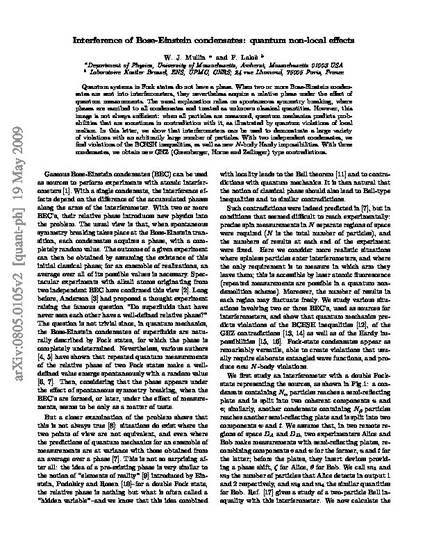
Quantum systems in Fock states do not have a phase. When two or more Bose-Einstein condensates are sent into interferometers, they nevertheless acquire a relative phase under the effect of quantum measurements. The usual explanation relies on spontaneous symmetry breaking, where phases are ascribed to all condensates and treated as unknown classical quantities. However, this image is not always sufficient: when all particles are measured, quantum mechanics predicts probabilities that are sometimes in contradiction with it, as illustrated by quantum violations of local realism. In this Rapid communication, we show that interferometers can be used to demonstrate a large variety of violations with an arbitrarily large number of particles. With two independent condensates, we find violations of the Bell-Clauser-Horne-Shimony-Holt inequalities, as well as N-body Hardy impossibilities. With three condensates, we obtain Greenberger-Horne-Zeilinger-type contradictions.
Available at: http://works.bepress.com/william_mullin/12/